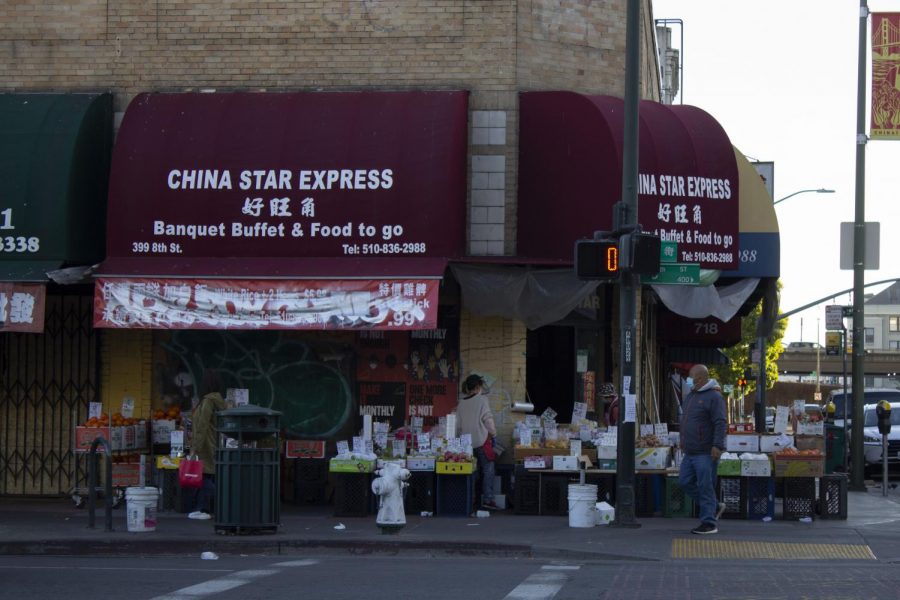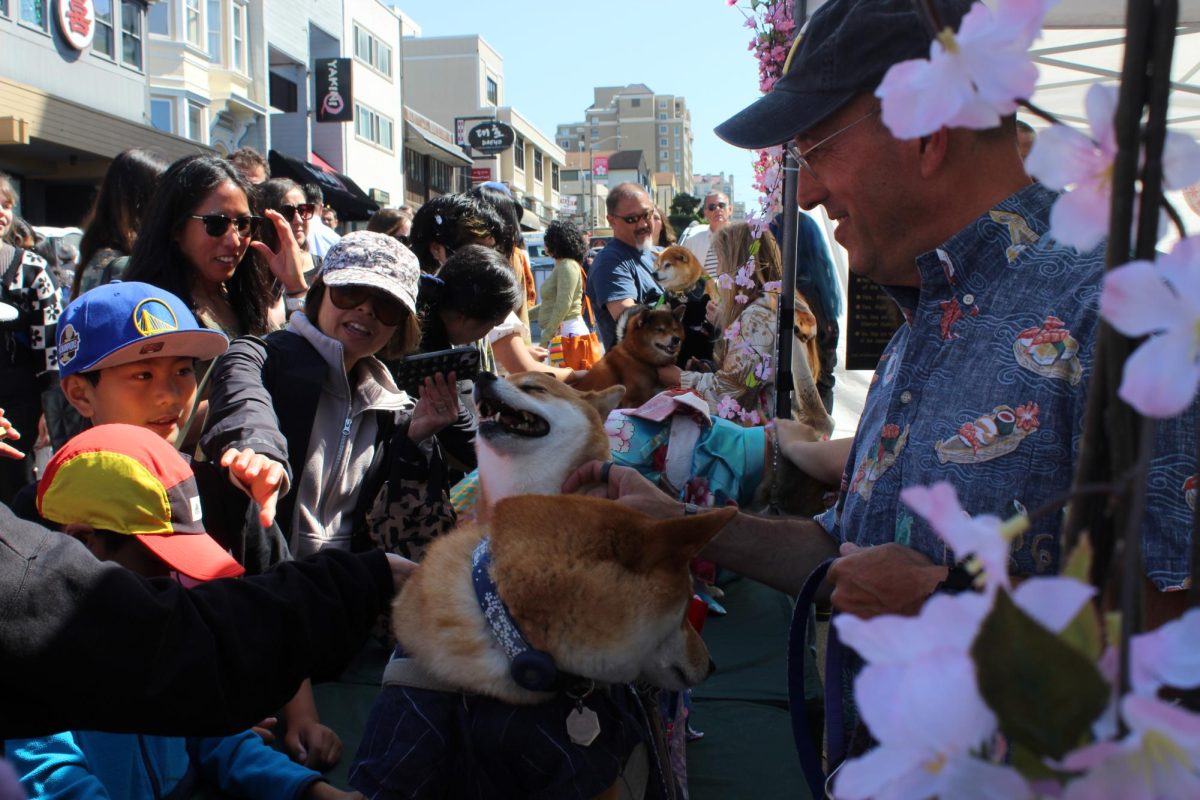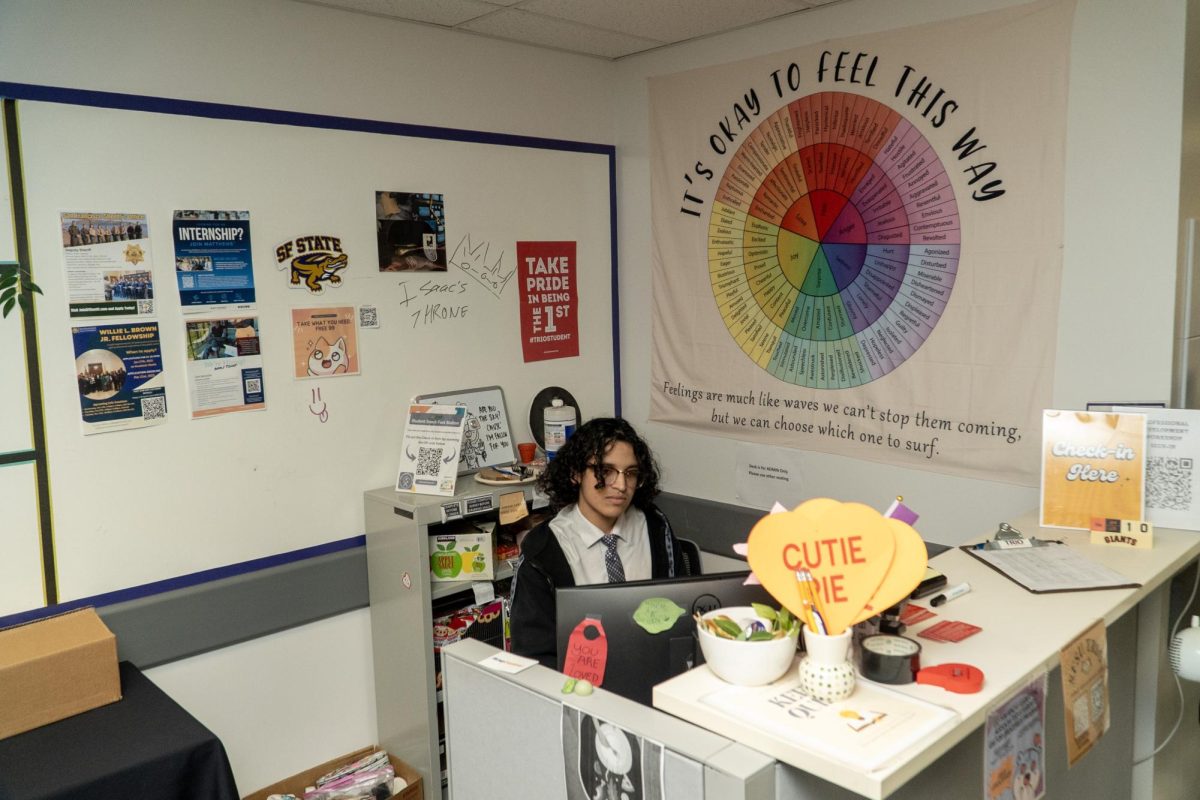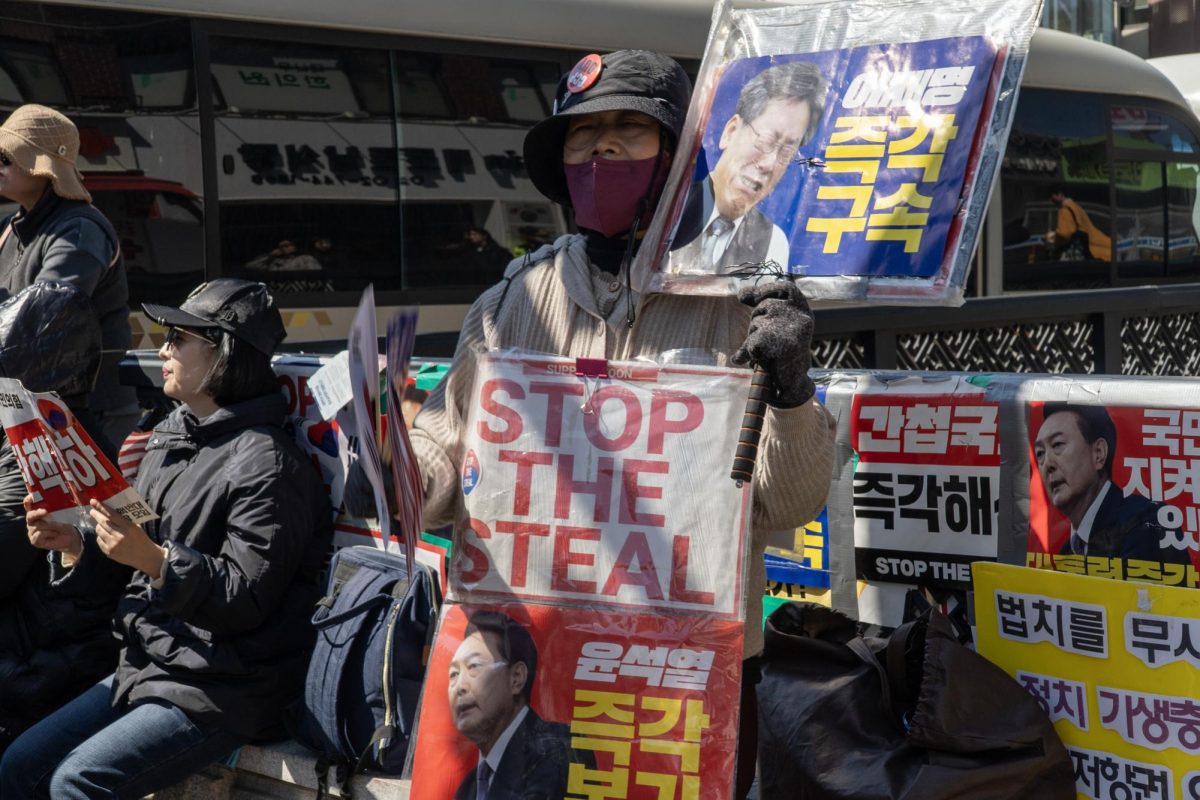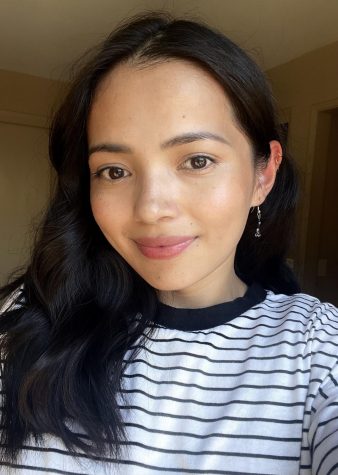Ever since the beginning of the pandemic last March, anti-Asian violence has been on the rise nationwide, but the recent uptick of attacks and robberies against older Asian people in the Bay Area has gained national media attention and support, from elected officials to celebrities.
Out of 2,808 reported incidents against Asian Americans from March 19, 2020 until the end of the year, 708 of them took place in the Bay Area, according to the Stop AAPI Hate reporting center. Almost 41% of the victims were Chinese Americans.
The multitude of allegedly racially-charged attacks, especially with the targets being older Asian Americans, was a tipping point for some people. This has inspired Bay Area residents to take action in protecting those most vulnerable, the elderly Asian American population, and spread awareness about these incidents.
Jimmy Bounphensy works as a leading member of a citizen patrol group called Asians with Attitudes in Oakland, where he patrols in the streets with his group. He started patrolling solo in response to the news and videos circulating of elderly Asian Americans being attacked.
“I was raised by my grandparents most of the time, so I can only imagine something happened to my grandmother collecting cans, walking every single day collecting cans,” he said.
Bounphensy works 10- to 12-hour shifts six days a week, in addition to working as a truck driver, who drives from San Jose to patrol in Oakland every day, including his days off. He sometimes brings his daughter along to serve as a junior patrolee, in hopes that she’ll pursue the same path of protecting elders and even pass the message to the next generation.
“No matter what, you got to stand up and fight back, and no matter what, always help the elderly out,” he said.
The group started expanding every week; As people started sharing videos of Bounphensy, who is also an Asian American, on social media, more people reached out to him to join his movement. On one weekend, he had more than 50 people of different ethnic groups patrolling the streets of Oakland; he expressed his gratitude for his crew members and supporters. He said he’s trying his best to protect his people and make their voices be heard for as long as it takes.
Russell Jueng, SF State professor of Asian American Studies, said the solution to this issue partially requires grassroots effort of individuals in the community. More resources for trauma-informed care, education and health access, along with a community-based patrol board, is a start.
“Individuals can make a big difference. Again, we’re organizing Chinatown stroll, so going out and walking around being the eyes and ears of the community in a physically safe manner is helpful,” Jueng said.
Jueng said there is a need for more public education such as ethnic studies to address the roots of racism and promote racial solidarity and empathy.
Simmy Makhijani, professor of Asian American Studies and Race and Resistance Studies at SF State agrees with Jeung.
“Scapegoating Asians as the harbingers of disease on the one hand and ongoing state-sanctioned violence against Black communities on the other are really two sides of the same coin,” Makhijani said. “This is one critical reason that our communities must absolutely refuse being pitted against each other, refuse falling into the tired colonial playbook move of divide and conquer. Because when we are divided, we are too easily conquered.”
Many organizations are demanding increased policing in Chinatown in response to the recent increase in violence. In a press conference held on Feb. 3, regarding these attacks in Oakland’s Chinatown, Mayor Libby Schaaf condemned Nikki Fortunato Bas, city council president, for her budget proposal last summer to reallocate funds from police services – the plan was voted down.
Following the conference, Bas went on Facebook livestream to defend herself, shifting the blame back to the mayor. She said that the $15 million cuts in Oakland Police Department in December were made by Schaaf and City Administrator Ed Reiskin. Schaaf justified the cuts as crucial to addressing a $62 million budget deficit the city’s facing, in the press conference.
Since some of the suspects in these recent attacks were Black, there has been a growing concern regarding fueled divisions between Asian and African American communities.
In response to the attack against 91-year-old Asian American in Oakland, who was shoved violently in the ground, two Asian American actors, Daniel Dae Kim and Daniel Wu, offered a $25k reward for information about the suspect. The suspect who was later arrested is a 28-year-old African American man.
Oakland Councilmember Carroll Fife expressed that such reward puts “bounties on Black men’s heads.”
Makhijani, in agreement with Fife, similarly remarked on how communities patrolling their own streets “might be a strategic response to refusing calls for heavier policing,” but cautioned about groups that “may emerge under the pretense of community patrolling and racially profile and harass Black folks in Asian communities.”
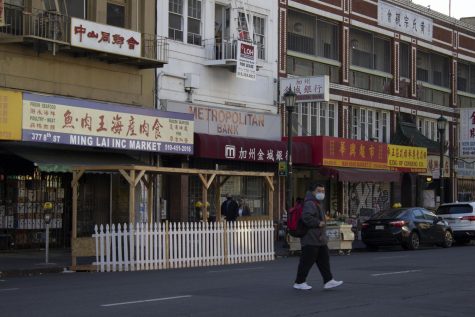
crimes against them. (Katherine Burgos / Golden Gate Xpress) (Katherine Burgos)
“These tactics, whether deliberate or not, serve to further divide our communities,” Makhijani said. “So we need to be attentive to these kinds of tensions if we are going to take up a real commitment of solidarity and go beyond symbolic gestures in order to move towards embodied and transformative kinds of solidarity. This moment requires this of us, we can and must continue to build in this direction, together.”
Makhijani provided a broader context as to how this fragmentation generally happens within the community.
“Unfortunately, when violence occurs in our communities it is too easy to take that suffering out on other marginalized groups,” Makhijani said. She added it’s a part of how gendered and racial supremacy function; by tutoring communities against one another instead of locating the fight in harmony against the dominant systems and institutions who benefit off of the divisions and struggles.
Although responses to recent anti-Asian attacks have differed across communities, two community-led events held in Oakland and San Francisco on Feb. 13 and Feb.14, respectively, drew a strong multiracial crowd that stood together in solidarity with AAPI communities with many in attendance holding signs and wearing t-shirts that read “Asian ‘n’ Black Solidarity: We Keep Us Safe!” and “Asian x Black x Unity.”
Makhijani, who is also a longtime local organizer that’s been active in Asians4BlackLives since its start in 2014, said that this kind of turn out in the Bay Area is a result of “years of organizing across communities of struggle.”
She added that it is important to keep in mind that people of color, and more specifically Asian and Black communities, share histories of resistance together and have relationships that have been molded through long-term political struggle.
Makhijani said by continuing to build on those histories marginalized communities become even stronger. “With this history comes greater responsibility to the present,” she said.
For Jueng, that responsibility includes directing support to Asian-owned businesses, promoting community ambassadors and reporting hate incidents to help develop a collective response, one which he said has been really effective.
“We were able to get President Biden to issue an executive memo, we were able to get Congress to denounce anti-Asian racism. So the more reports we get, the more we could develop a collective voice, saying we’re not going to stand for this type of racism are attacks,” Jueng said.
The coalition of organizations that put out a press release on Feb. 9 suggested that we need to go much further. The coalition asserted that victims and survivors of violence of all backgrounds must be ensured support services to fully heal and that community-led intervention and prevention-based services must be expanded while more resources are invested in education, healthcare, housing and jobs in the communities that need it the most.
The coalition also emphasized the need to resource cross-community education and healing in Asian American and Black communities in order to advance humanizing responses rather than demonizing responses.
Makhijani summarized the demands of the Feb. 9 press conference remarking that “directly impacted community residents and organizations are calling for community safety through asks that don’t just address the immediate effects of violence, but also call for addressing the root causes of violence by investing in the bread and butter issues that will keep us all safer.”




